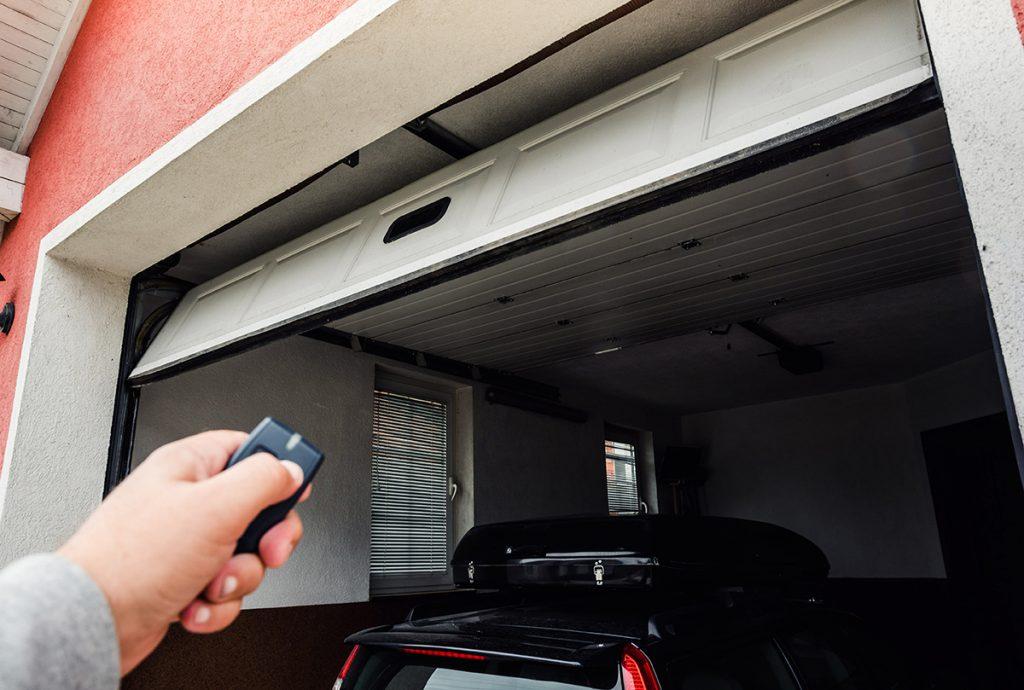Have you ever experienced the frustration of a garage door opening at a snail’s pace? A properly functioning garage door is essential for convenience, security, and peace of mind. If your garage door is opening slowly, it’s important to address the issue promptly to avoid potential safety hazards and inconvenience. In this troubleshooting guide, we will explore the common causes of slow garage door openings and provide you with practical solutions to get your garage door back to its smooth and efficient operation.

Understanding the Causes of Slow Garage Door Openings
A slow garage door can be attributed to various factors. Let’s delve into the common culprits behind this issue:
- Insufficient lubrication: Over time, the moving parts of your garage door, such as hinges, rollers, and tracks, may lack proper lubrication. This friction can slow down the door’s movement.
- Damaged or worn-out rollers: If the rollers that guide your garage door along the tracks are damaged or worn out, they can impede the smooth operation of the door, causing it to open slowly.
- Misaligned tracks: If the tracks that guide the garage door are misaligned, the door may encounter resistance during its movement, resulting in sluggish operation.
- Tension issues with springs and cables: Garage doors rely on springs and cables for balanced and efficient movement. If these components are experiencing tension issues or are in need of adjustment, the door may open slowly or struggle to open at all.
- Electrical problems: If your garage door opener motor is experiencing electrical issues or malfunctions, it can cause the door to open slowly. Wiring problems or a faulty opener can contribute to this problem.
DIY Troubleshooting Steps
Before you embark on any troubleshooting steps, it’s important to prioritize safety. Ensure the garage door is disconnected from the power source and follow these DIY troubleshooting steps:
- Checking and lubricating the garage door components: Inspect the hinges, rollers, and tracks for any signs of wear or damage. Apply a high-quality garage door lubricant to ensure smooth movement.
- Inspecting and cleaning the tracks: Check the tracks for any debris or obstructions that may hinder the door’s movement. Clean the tracks thoroughly and ensure they are aligned properly.
- Adjusting the spring tension: If you suspect tension issues with the springs and cables, it’s best to seek professional assistance. Garage door springs are under high tension and can be dangerous to adjust without the proper knowledge and tools.
- Aligning the tracks and rollers: If you notice misalignment, use a rubber mallet to gently tap the tracks back into position. Similarly, adjust any misaligned rollers to ensure they move smoothly along the tracks.
- Examining the opener motor and electrical connections: Inspect the garage door opener motor for any visible signs of damage or loose connections. If you identify any electrical issues, it’s advisable to consult a professional technician for repairs.
When to Seek Professional Help
While DIY troubleshooting steps can resolve many garage door issues, some situations call for professional assistance:
- Complex or dangerous repairs: If you encounter complex problems, such as severe spring tension issues or extensive motor malfunctions, it’s best to leave the repairs to trained professionals who have the expertise and specialized tools.
- Potential hazards of DIY repairs: Garage doors are heavy and operate under tension. Attempting complex repairs without proper knowledge and experience can lead to accidents, injuries, or further damage to your garage door system.
- Importance of hiring a licensed and experienced technician: Professional garage door technicians possess the necessary skills, knowledge, and tools to diagnose and fix issues efficiently and safely. Hiring a licensed technician ensures a thorough and reliable repair job.
Preventive Maintenance Tips
To avoid future slow garage door openings, proactive maintenance is key. Follow these preventive maintenance tips:
- Regular maintenance: Establish a regular maintenance routine that includes lubricating moving parts, inspecting the door and tracks for wear, and tightening any loose hardware.
- Lubrication schedule for different components: Refer to your manufacturer’s guidelines to determine the recommended lubrication schedule for hinges, rollers, springs, and tracks. Regular lubrication helps reduce friction and ensures smooth operation.
- Visual inspections and cleaning routines: Conduct visual inspections periodically to identify any signs of wear, damage, or misalignment. Clean the tracks from debris and remove any obstructions that may hinder the door’s movement.
- Importance of professional tune-ups: Schedule professional tune-ups at least once a year. During these tune-ups, a technician can identify and address potential issues before they escalate, ensuring the optimal performance of your garage door system.
Conclusion
A slow garage door can be a frustrating inconvenience, but with the right troubleshooting steps and preventive maintenance, you can restore its smooth and efficient operation. By addressing the causes behind slow garage door openings and following the appropriate solutions outlined in this guide, you’ll be able to enjoy the convenience and reliability of a well-functioning garage door. Remember, safety should always be a priority, and when in doubt, don’t hesitate to seek professional assistance. Keep your garage door in top shape and bid farewell to sluggish openings.



Leave a Reply